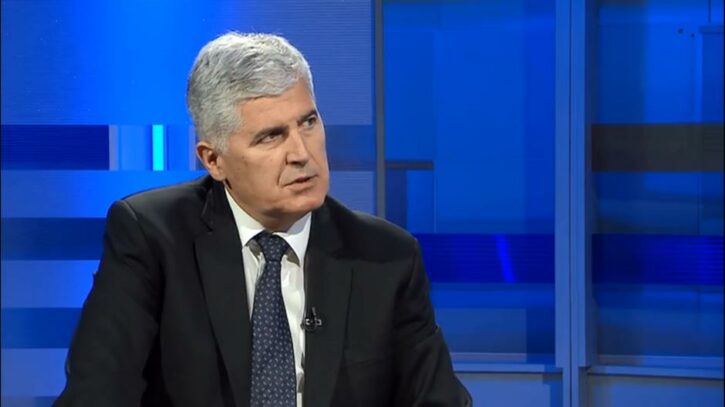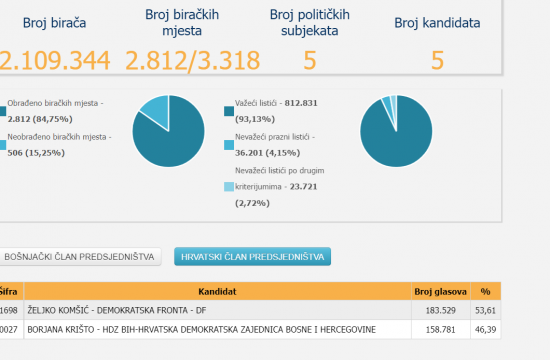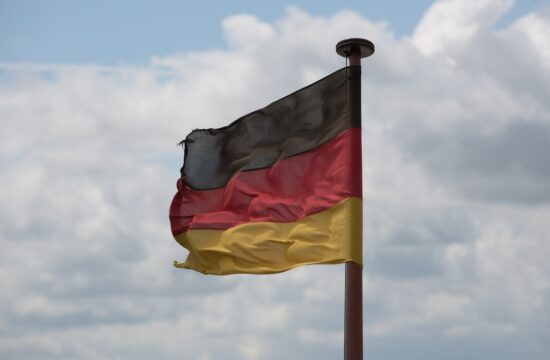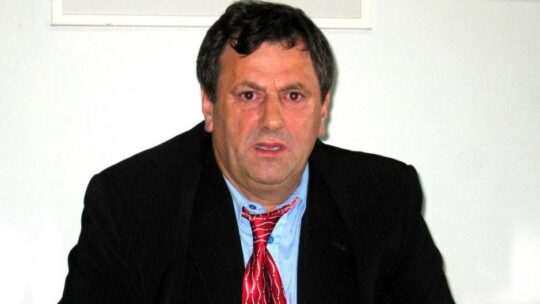
It is about time to turn a new page and send a message to the European Union (EU) that they can count on us in the future when making decisions, Bosnian Croat leader Dragan Covic, who is taking over the chairmanship of the State House of People on Monday said in an interview for Fena news agency.
If the state-level government is formed within 15 days, it would mean a significant step forward, said Covic.
“We have been outwitting each other for too long and deepening the mistrust. It is about time to turn a new page and send a message from Bosnia and Herzegovina to the European Union, which sees Southeast Europe differently today, that they can count on us in the future when making decisions,” said the Croat leader.
Delegations of the election winner parties, the Croat Democratic Union (HDZ BiH) and the Party of Democratic Action (SDA), are set to meet on Monday and try to reach an agreement on the government formation in one of two Bosnia’s semi-autonomous regions, the Federation (FBiH), which is shared by the Bosniaks and Croats.
According to Covic, they will open talks on the Election Law changes and other issues that concern the functionality of the institutions and agenda for the upcoming period.
Changes to the election legislation have been stumbling stone in the government formation in this entity as the main Croat party, Covic’s HDZ BiH, and their supporters believe that the current law prevents the Croat representatives to be elected by their own ethnic group.
There are countless solutions that would meet the criteria regarding the representation of the major ethnic groups, said Covic, adding that he will try to “open the talks in a very fair manner.”
He hopes the election legislation could be changed before the election year, which is 2020.
As for the state-level government, which besides the Bosniaks and the Croats also include the representation of the Serb people and the Republika Srpska (RS) entity, Covic said he would ask SDA leader, Bakir Izetbegovic, to start an “unconditioned formation” of the state government, formally the Council of Ministers.
“That would speed up the processes and even what is set as a condition for out Euro-Atlantic path, and that’s the Annual National Programme (ANP) for the NATO. That has to be done by the new Council of Ministers when it takes over the duty,” said Covic.
Over a year after the general election in Bosnia, the state government still haven’t been formed due to political disagreements on the country’s NATO road. While the Bosniaks and the Croats support it, the Serb leadership headed by Milorad Dodik strongly objects Bosnia’s NATO membership and follows Serbia’s stance on this matter.




